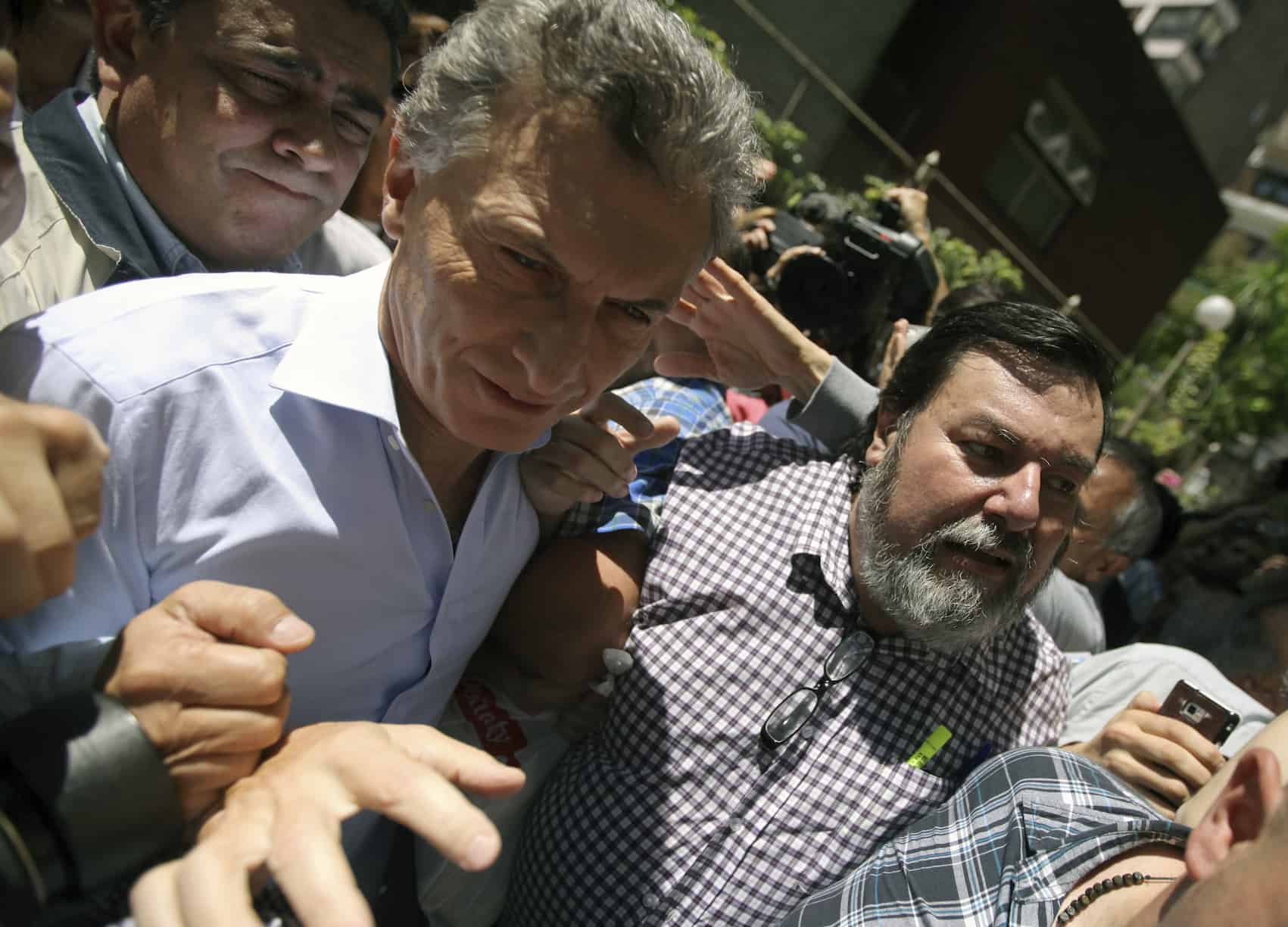Polls show that the mayor of Buenos Aires, former Boca Juniors football executive Mauricio Macri, 56, could cause an upset by beating his left-wing rival Daniel Scioli, 58, an ex-power boating champion.
If Macri breaks the grip of Peronism, the broad populist movement that has dominated Argentine politics for much of the past 70 years, he could become Argentina’s most economically liberal leader since the 1990s.
Polling stations opened at 8:00 a.m. local time under sunny blue skies in the capital Buenos Aires, a key electoral territory.
Macri has cast himself as a force for change, as many voters are fed up after 12 years of government by Kirchner and her predecessor and late husband, Néstor Kirchner.
“He represents a change of regime. Populism is a scourge,” said Luis Nizzo, an 81-year-old retired engineer, after voting at a school in Buenos Aires.
“We have lived too long with Peronism. This has been the most corrupt government in Argentina’s history.”
At another nearby polling station, 25-year-old Guillermo Juárez said he voted for Scioli, “because of everything they say about Macri — that he will take away support for working people and cut social welfare programs.”
Macri has vowed to liberalize the economy after the Kirchners’ policies of state control and protectionism.
“This is a festival of democracy,” he told a crowd of reporters and supporters after voting on Sunday. “It is a historic day that will change our lives,” he said, as his supporters yelled “Yes we can!”
Scioli said Macri’s proposals threatened Argentines’ welfare payments, salaries and industry.
He called on Argentines to “choose the best path for social, economic and political stability,” after casting his ballot in the suburbs of Buenos Aires.
“Think of your salary and your job,” he said.
Argentine trade and dollars
The latest opinion poll by consultancy Management and Fit showed Macri with 55.3 percent support and Scioli with 44.7 percent.
Polls in Argentina have proved unreliable in forecasting results in the past however. They also indicated there were millions of undecided voters.
Macri has proposed lifting restrictions on imports and on U.S. dollars — though analysts say he may struggle to push reforms through a hostile Congress.
He surprised pollsters in the first round vote by finishing just three points behind his rival, with 34.1 percent of the vote to Scioli’s 37 percent.
The narrow result forced a run-off vote, the first in Argentina’s history.
The increasingly tense campaign has been fought on shifting political ground in the vast South American nation of 42 million people.
His rise raised hopes among financiers, but fears among domestic businesses and poorer Argentines who have benefited from the social and trade policies of the combative outgoing president.
Whichever man wins now will have to tackle soaring inflation, currently estimated at more than 20 percent.
He will also face a dispute with so-called “holdout” creditors who have sued Argentina in the U.S. courts for unpaid debts. Scioli and Kirchner call the hedge funds “vultures.”
The Kirchners presided over a spectacular economic turnaround that is now flagging. The economy grew at a relatively slow rate of 2.2 percent in the first half of this year.
“Whether Macri or Scioli wins it will be all the same in the end,” said Alejandro Segundo, a 20-year-old waiter in Buenos Aires who cast a blank vote.
“I don’t hope for anything good. I’ll still be breaking my back working to put food on the table.”
Voting was due to close at 6 p.m. local time (3 p.m. Costa Rica time) with first results expected in the following hours.






